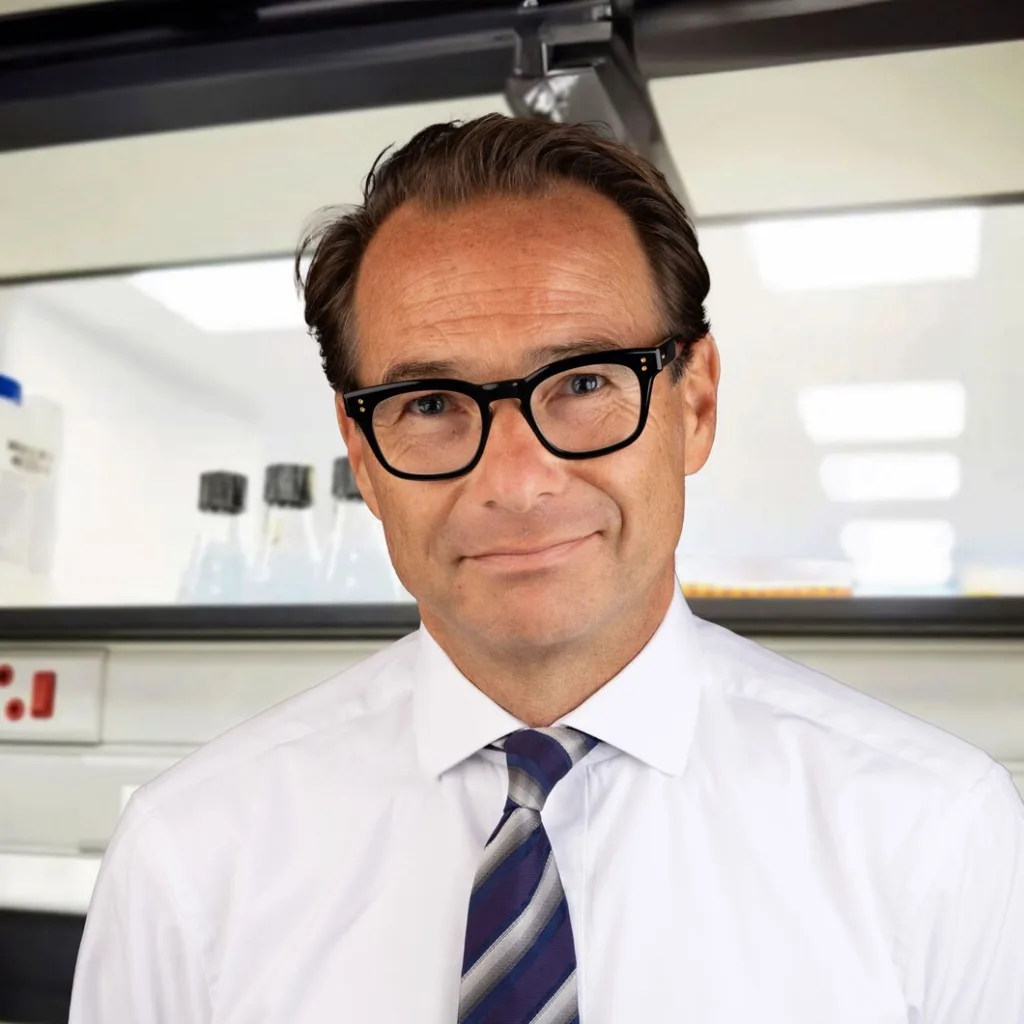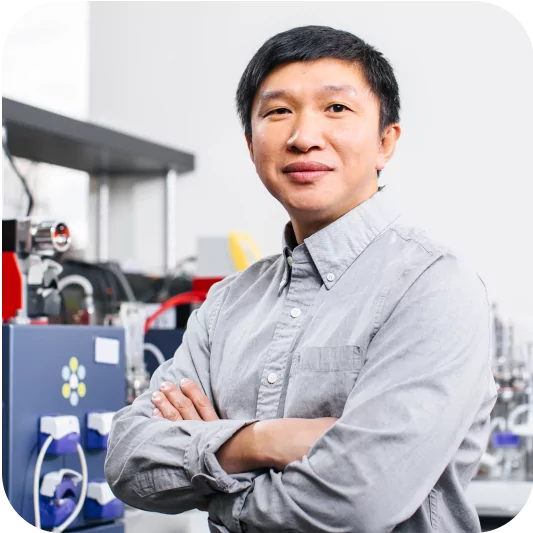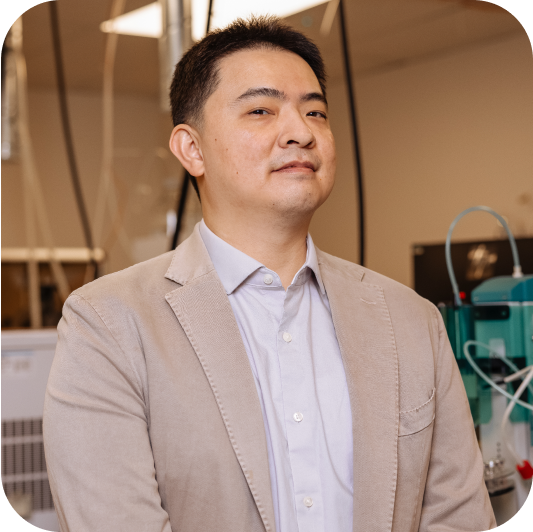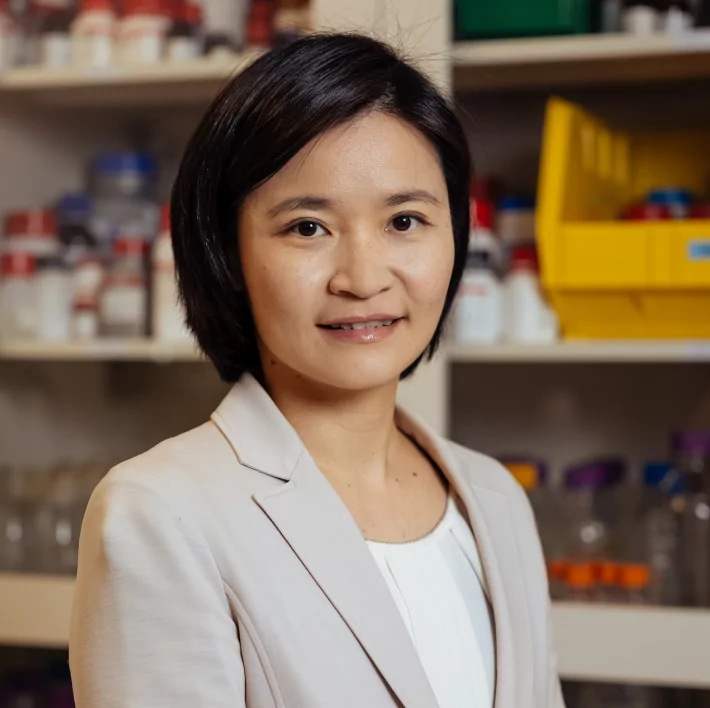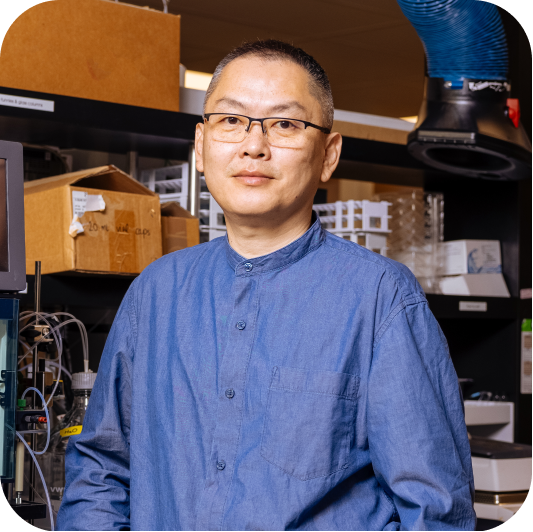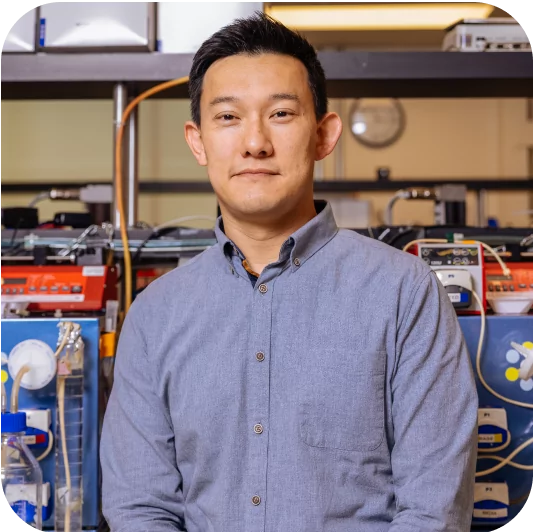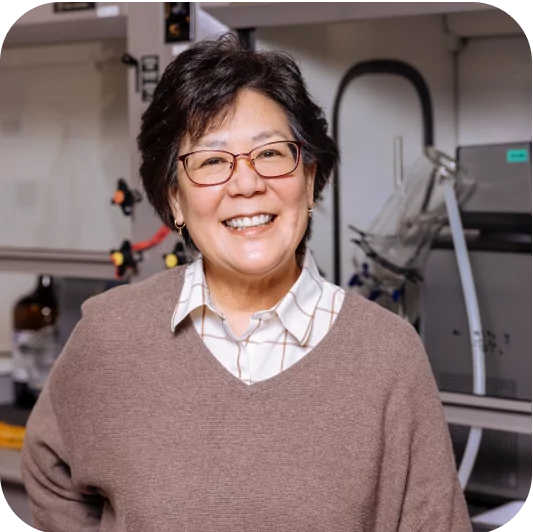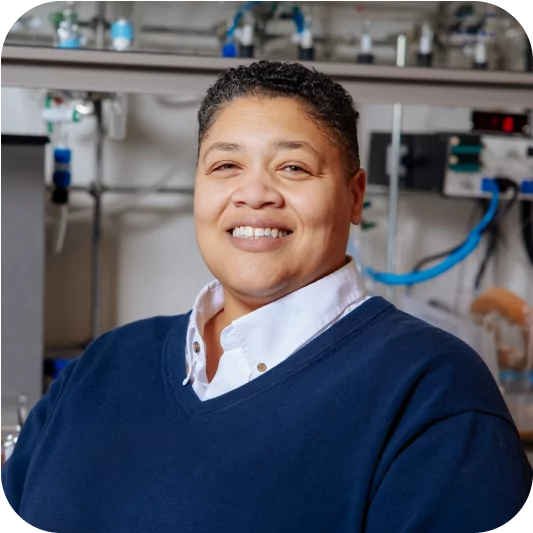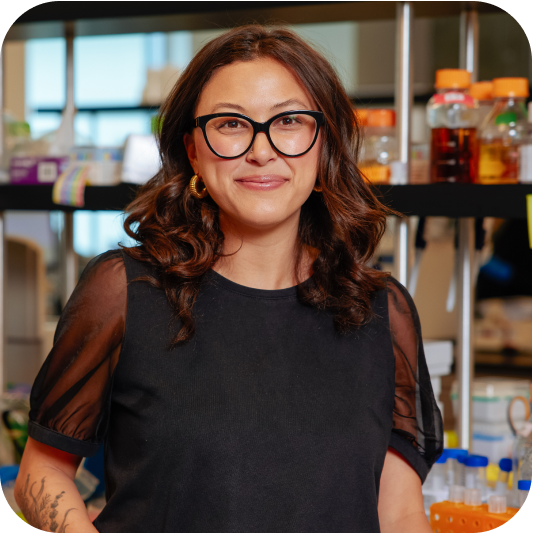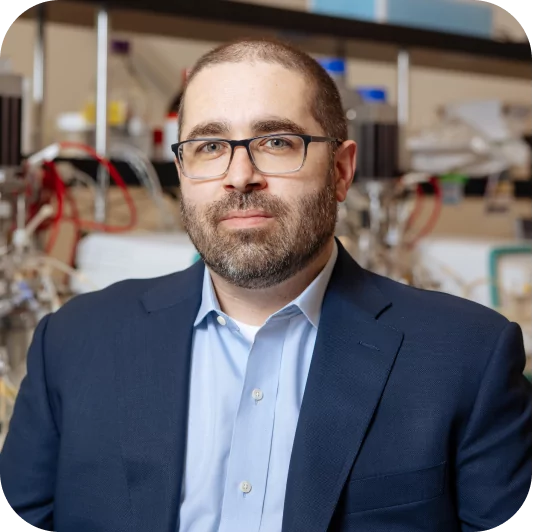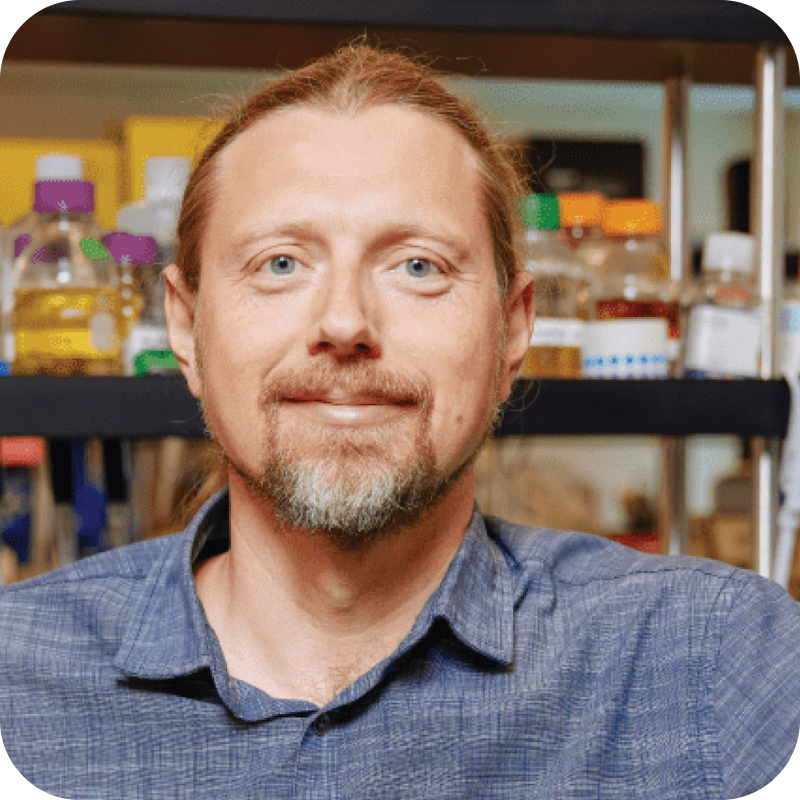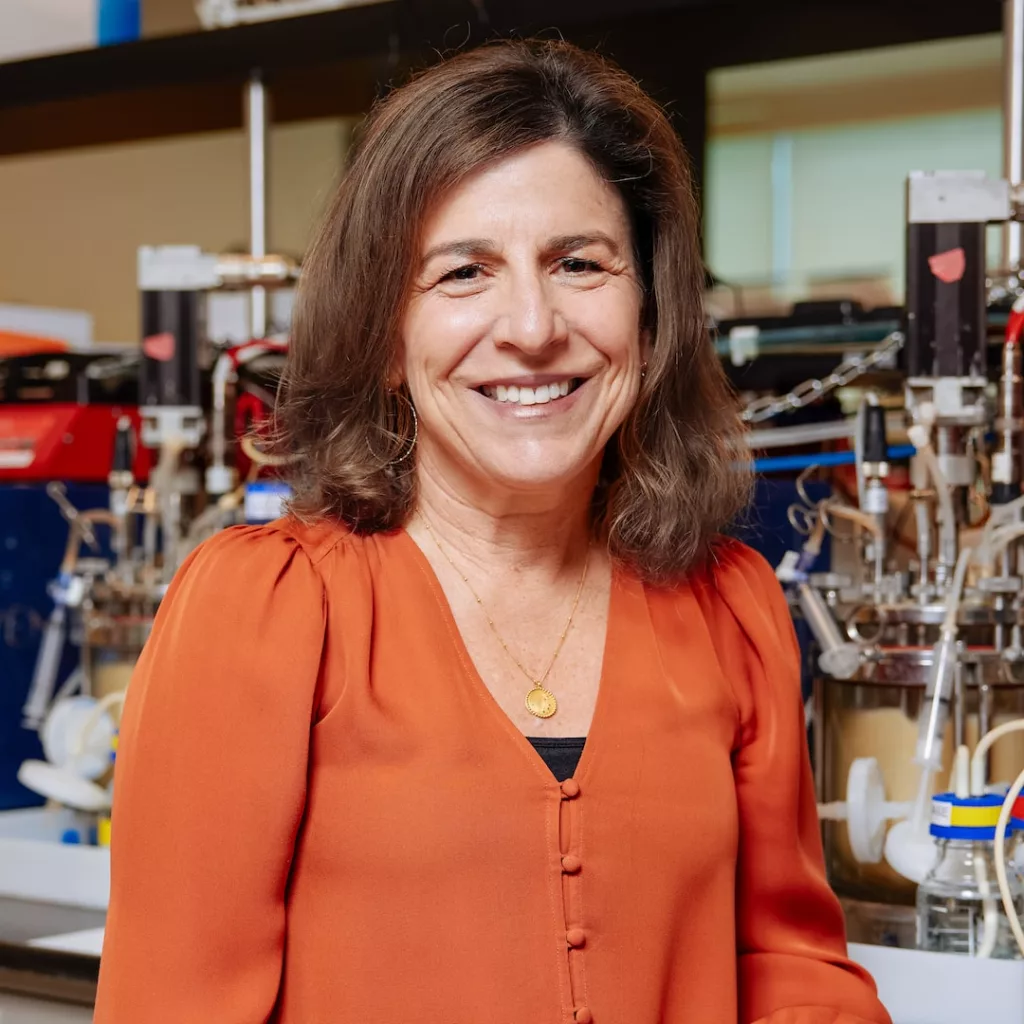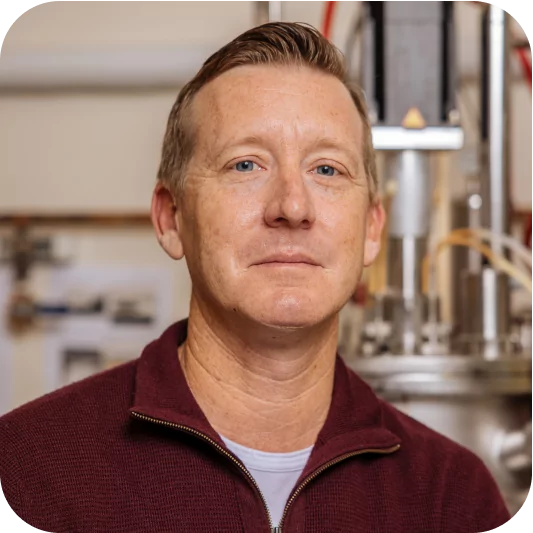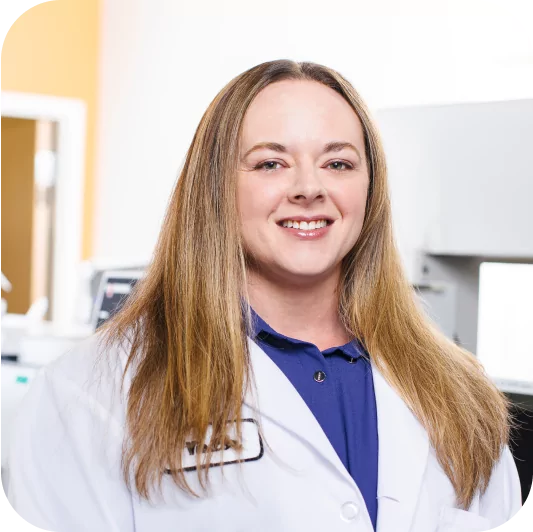As the Head of Downstream Processing, Suzanne Sato leverages her 19 years of experience to lead downstream chemistry processes at Antheia. Her ability to keep the big picture in focus while working collaboratively with various teams is central to the success of Antheia’s mission.
Suzy recently sat down for a Q&A in which she shares her insights on the challenges and opportunities that arise when bridging the gap between research, commercial production, and downstream processing in the biomanufacturing industry, as well as the team dynamics that make success possible.
Q: Tell us a little bit about your background, and how you came to Antheia?
I originally planned on teaching science, but while I was getting my degree in chemistry, I ended up doing two years of research on inorganic chemistry and got bit by the research bug. I discovered I really enjoyed the hands-on work and problem solving that comes with research, and knew that I just had to get a job in the industry. In research, you rely on a lot of things you’ve learned, but you have to adapt and apply it differently most of the time, which means you have to get pretty clever and creative.
What drew me to the synbio field specifically was the opportunity to do something sustainable that could truly compete with fossil fuels-based chemistry. For my first job in the industry, I was lucky enough to work for a company called Arena Pharmaceuticals that had its own pilot plant producing active pharmaceutical ingredients (APIs). While at Arena, I worked in chemical synthesis, which provided my foundation for process development with training from chemical engineers and process chemists. I gained hands-on experience with developing chemical routes for scalable processes. This is not as simple as just performing the same chemistry on a larger scale. You have to take into consideration the costs, yields, and cycle times and most manufacturing processes are very different from the original bench-scale process. I also received training working within GMP compliance, learning to understand the gravity of producing APIs that would be tested on human beings is critical in the pharmaceutical industry.
Eventually, I joined Amyris, which was my first experience with fermentation products. This is very different from chemical synthesis, as bio-derived products have much more variability. No two fermentations are exactly the same in impurity profiles. This meant the team had to develop very robust processes while at the same time meeting the specifications deduced by the commercial team for customers. In the 8 years I worked with the Amyris team, we had very aggressive timelines and the team had to learn a fail-fast approach. For chemical conversion products, it was about the simplest path to the products, minimizing the number of steps and raw materials. We would try several routes and continuously narrow the possibilities based on testing until the process was defined, then we optimized.
An opportunity at Antheia came at exactly the right time. I had built a team at Amyris that was doing really well, and the role at Antheia allowed me to apply my collective career experience from both the pharmaceutical ingredients side and the fermentation process development. It was the perfect combination, so of course I said yes.
Q: What milestones in your career are you particularly proud of?
One of my proudest accomplishments is that I played a pivotal role in helping the team at Amyris transition from chemical process development to fermentation process development. We were able to pivot quickly and successfully, taking 11 projects to commercial scale. Normally, it takes 18-24 months to develop and scale a process to manufacturing, so for the team to have scaled so many processes successfully in 8 years to meet specifications speaks volumes of their skill.
More recently, I’ve been thrilled to be a part of Antheia’s efforts to scale our first products to commercial levels. In the four years I’ve been at Antheia, I’ve had the pleasure of building the DSP team and watching my colleagues grow into skilled industry-leading professionals and prove themselves with every successful run, from pilot to commercial scale. I’d like to think that my aspirations for being a teacher have still been fulfilled at Antheia.
Q: Antheia’s core mission is to innovate and transform essential medicine supply chains. Tell us more about how your role as Head of Downstream Processing supports this mission. What are your key responsibilities?
As soon as fermentation is complete, the DSP team takes control of the whole cell broth material to begin refining it; it’s our job to purify and isolate our products from what’s known as the fermentation broth. My responsibility is to ensure that we keep the big picture in mind, as it’s easy to become myopic and focus only on the immediate problems at hand, or even go down rabbit holes when conducting bench-scale work at 1-20L scale. Part of that is always remembering that our work must be able to apply to tech transfer, and it needs to scale up to a commercial scale of more than 100,000L. There’s a common misconception that scaling up processes is just about making the bench-scale work bigger, but it’s actually much more complex.
Some of that complexity is that we have to be able to speak to the manufacturing team about the engineering aspects of our work, not just the chemistry. Since DSP goes through stages, we have to start with understanding the physical properties of the product. As we scale, we leverage this knowledge while keeping in mind the equipment we have to work with to implement our processes. Our Chief Operations Officer Zack McGahey recently touched on this aspect in his blog, The Road to Commercialization.
Another key responsibility in my role is building and managing my team. Our DSP team is composed of both chemists and engineers, and this combination is crucial, in my experience, to ensure that our process can successfully be reproduced and scaled. What I’ve learned is that by the time you get to pilot scale, if there are only engineers on the team, they are unlikely to be able to solve problems occurring on the molecular level. On the other hand, you may have a team of chemists who are perfectly capable of solving a problem on a molecular level, but they do not have the engineering know-how to efficiently scale. Our DSP team is balanced to maintain a holistic view of the work to be done with both the chemistry and engineering processes.
Q: Could you elaborate on the challenges and opportunities you encounter when bridging the gap between research, commercial production, and downstream processing in the biomanufacturing industry?
One of the biggest opportunities is that this is a new technology and our platform is capable of making complex compounds using yeast organisms as the manufacturers. While the R&D team modifies these yeast organisms to produce the exact product that we want, the challenge our DSP team tackles is in scaling up purification and isolation processes for biomanufacturing. We take this incredible innovation from R&D and figure out how to make it practical and cost-effective for our customers. We mostly have to work within the box of standard tools and processes, because being novel is not the goal for us nor is it cost effective – if the process is so novel that the equipment doesn’t exist, someone has to create it, and then build a whole new plant to run it. In a way we are limited to what fits within the “box,” but we get to be – and have to be – really creative with our approach to make all the pieces work together.
The greatest challenge in bridging the gap between these processes and departments is never forgetting the big picture. In order to create a process that will go all the way to successful commercial manufacturing, the DSP team has to keep several functions in mind. We work closely with the R&D teams, of course, because they develop the strains and permutations – we must understand what’s coming our way and share feedback, for instance, if there’s something that we can’t necessarily separate from the fermentation broth. We go back and forth with those teams and discuss how and if, with either a different permutation or strain, we can make it possible to remove the impurities in a way that’s more efficient. We also have to work with the manufacturing team that utilizes our DSP process for scaled production. Our teams collaborate to figure out how our process is going to fit in with the manufacturing equipment available. In many cases, we don’t know in advance what equipment we will be dealing with, which means there’s a good deal of modification and feedback between DSP and manufacturing. Finally, we work with the commercial team because our process has to yield a product that consistently meets the specifications that our customers want and expect.
Q: Your role is focused on the success of downstream processes in Antheia’s pipeline. How do you see that unfolding in the next year? In the next 5 years?
Now that we’ve completed our first successful demo run at commercial scale, this next year will be focused on supporting manufacturing our first products. Beyond that, we’ll continue to support the early-stage process development for other products in our pipeline and scaling up our other near-term products to manufacturing. In the coming years, it will be a cyclical process as we work on unleashing Antheia’s robust pipeline of KSMs and APIs while leveraging the experience of each run to gain new efficiencies.
Q: You’re very involved in building up team culture and morale – what would you say makes Antheia a great place to work, and how do you try to contribute to it?
Antheia is a great place to work thanks to the people here. There is a real conscious effort to hire not only intelligent, skillful individuals but also those who fit well within the team’s culture. Everyone here are just good, nice people, and are a joy to work with! And notably, team morale and motivation goes hand-in-hand with this culture. We work really hard to establish and maintain a sense of urgency by communicating and contextualizing the importance of this work – and when we hit our goals, we ensure people are recognized for their hard work.
Our team culture is built around leaving room for improvement and not letting perfection get in the way of progress. There will always be external pressures we have to deal with, but I find that creating an environment where the team knows that they need to be practical, not perfect, goes a long way in lifting some pressure off their shoulders.
Finally, there’s one other job role I perform outside of my DSP duties that brings me a lot of joy, which is having the pleasure of preparing lunches for all the office dogs. It’s so great that Antheia is such a dog-friendly workplace, and I used to bring in my old girl Maddie before she passed. I would make her a gourmet lunch full of delicious ingredients everyday in the office as a little pick-me-up to keep her comfortable, but of course I couldn’t leave the others out. So preparing their lunch became a wonderful part of my daily routine, and the company’s dogs came to expect it. When Maddie passed, I foolishly thought that might be the end of my dog chef career, but the dogs kept showing up at my desk, right on time waiting for lunch service, so I still make their food every day. I even work on perfecting my recipes – I should add that as one more great achievement in my career because I’ve never had even the pickiest dog turn down one of my lunches. I was delighted to read that our esteemed Chief Dog Officer He-Man even mentioned me in his recent blog.
On that note, I’m sharing one of the Antheia dog lunch recipes with all of you – enjoy!
Doggy Chicken Stew (AKA The He-Man Chicken Special)
Ingredients:
- 2 whole chickens
- 2-3 red sweet potatoes
- 2 large carrots finely diced
- 2 cups green beans
- 1 cup brown rice
- Optional: baby corn chopped
Instructions:
- Roast chickens and sweet potatoes until done.
- Debone chicken, chop any large pieces into ~ 1/2 ” pieces (for older dogs with few teeth) and place in a pot.
- Add water to completely cover chicken. Bring contents to a boil and simmer for ~ 1 hour.
- Add rice directly into the simmering chicken along with sweet potatoes and corn.
- Bring contents back to boil and add green beans and carrots.
- Simmer until the green beans are just cooked and remove from heat.
- Freeze in serving portions.
